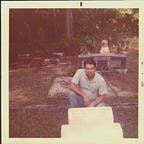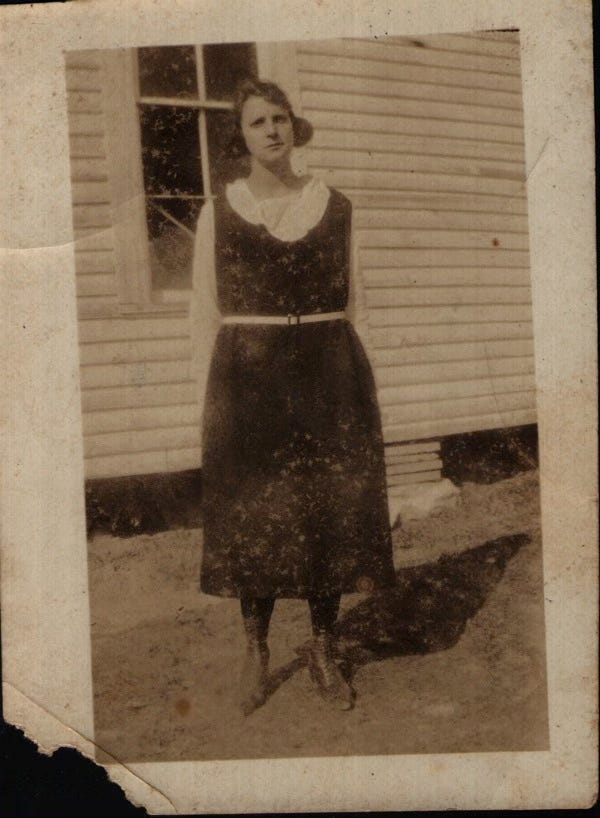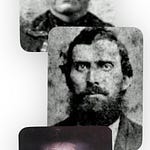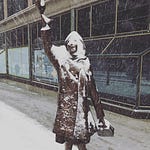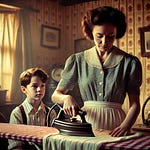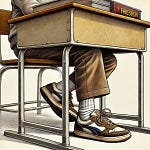Any father can be hard to figure, but that doesn’t mean a son should quit trying, no matter how old he gets to be. Even though he’s been gone for nearly 20 years, I’m still trying to understand mine. I still dream about him. His voice is always with me, directing, suggesting, demanding, approving, and affirming. And yes, criticizing.
So why not just let him go?
Because he refuses to leave, and even if he would, I’m not sure I would let him. Not yet. Because a man cannot wholly understand himself until he understands his father. A boy sees the world through his father’s eyes, and that never completely stops just because he has become a man. There are always revelations along the way, no matter how old the son gets to be.
For a long time, I thought my father was defined solely by his actions, so I meticulously inventoried them and studied each one like a crystal ball, trying to decipher his riddle. As I’ve aged, I’ve learned not to burden his actions with too much meaning. Many of the deepest wounds he inflicted weren’t even personal. He was simply reacting to some genetic message that tumbled down the ancestral garbage chute. Often, he was reacting to his own father. I just happened to be standing there at the time.
I’m not letting my father off the hook, absolving him of all responsibility. I’ve done my therapy. I’ve made exhaustive lists of my grievances. I’ve screamed, confronted, and beat pillows. But I’ve come to the liberating conclusion that not everything that happened in that family was about me. I was often merely a stand-in player in a drama that some ancestor wrote long before I was born, one I’m still doing my best to disentangle myself from
It’s also a reality check to remember fathers aren’t born fathers; they’re born sons. So, while you are trying to figure out your father, he’s still trying to figure out his. I reckon it goes back to Cain and Abel trying to figure out Adam, who had a full-time job avoiding eviction notices from his own formidable dad. I reckon a good part of mankind’s creative energy has been spent figuring out fathers.
I’m not sure my father ever understood his. I know he intensely disliked his father, and my grandfather didn’t seem too fond of Dad. Even as a young child, I could read the room.
Dad used to drag me along to visit Papa’s rundown shack deep in the Jasper County woods, far beyond where anybody ever heard of indoor plumbing. Mom usually had an excuse to stay home with my baby brothers—she hated visiting my grandfather’s house because Dad’s stepmother, Maude, thought she put on airs. My mother refused to dress down for anybody.
Papa’s house was cluttered, with stacks of apple and orange crates filled with who-knows-what and two broken TVs stacked on top of each other, one had sound and the other a picture. If a Black person appeared on the screen, Papa would have a fit, cursing and maybe throwing a shoe. The first thing Dad did was to turn off both sets.
Clearly, he was there out of obligation; he sat sulled up in the cramped living room with his father and stepmother, all competing to see who could put the fewest words in a sentence.
“You good?” Papa would ask.
“Reckon,” Dad would reply. “You?”
“Ain’t jumpin’ no stumps,” Papa would grumble, rubbing his leg. “Fay and the boys?”
“Fine. They’re at home. Arthritis?”
“Bad. Rain and all.”
“Need somebody to take you to the doctor?”
“They all bandits.”
“Need money?”
When Papa looked away shame-faced, I knew Dad would be writing a check before we left.
When Dad felt he had done his filial duty and it was time to get up and go, Papa would say, “That boy can’t leave without taking something with him.” It would have been the first time anybody noticed I was in the room. Papa targeted me because he knew Dad wouldn’t accept anything from him.
“He don’t need nothing,” Dad would say gruffly. “Whatever you got, you need it worse.”
“Goddamnit,” Papa would fuss, feeling the sting. “Just wait a minute.”
This was a ritual with all my relatives, maybe with everybody in the South. It was impolite to leave somebody’s house without taking what remained of a pie or a few pieces of chicken from the table. Even worse was not to offer, so despite my father’s protest, Papa would go rummaging around in the kitchen. It seemed to take forever.
Maude would scold, “John Otis, you hear him? He said not to give that boy anything!” Then, she would look at my father with all the warmth of a cottonmouth. “We ain’t got nothing good enough for his boy, no way.” She always smiled when she said something mean. It was no secret why my father ran away from home for good when he was ten.
But Papa had it in his head that I had to walk out with something of his in my hands. Maude wasn’t big on cooking, so there were times when he couldn’t find anything, and Dad would drive off while Papa was still looking. Even when I was in my 40s, and Papa was half-blind with cataracts and nearly crippled with arthritis, he would wheel his chair into the kitchen and commence his search.
At last, Papa would emerge with his parting gift—sometimes a bruised apple, a black banana, or a moldy satsuma, leftovers from his door-to-door produce deliveries in Laurel.
As we drove away down the ruined dirt track, Dad would look at me and then scowl at the inedible offering. He told me to throw the bad fruit out the window and be done with it.
Whatever Papa did to my father, I figured it was awfully bad, shrouded in mystery as it was. But there were clues dropped along the way.
Take my name, for instance. I naturally assumed I was named after Papa since his first name was John, and everybody called me Johnny. But Dad, in no uncertain terms, said I was not named after Papa and instructed me not to tell anyone I was. He said my mother simply liked the name Johnny, and that’s what the nurse wrote on the birth certificate. He watched over her shoulder to make sure.
I tried to get the straight story from my father’s Aunt Mary, who had a hand in raising him, but all she would do was shake her gray head sadly. “That poor little boy. Your daddy was such a poor lost soul.” Then tears would well up in her eyes. “That poor, motherless child.” And that’s all she would say as if she were sworn to secrecy. But it broke my heart every time.
The official family story was that my dad’s mother died of pneumonia in 1927 when Dad was only six months old and that my grandfather refused to get the doctor, making her death his fault. But that was as far as the story went, and the gaps and the careful way they told it—almost word for word—let you know there was much more they weren’t revealing, even to my father.
Beneath his tough exterior, there was a profound sadness about my father, yet it had no outlet. For years, I didn’t realize this sadness was unspoken grief. He could only express unguarded fondness when he spoke of his mother. This was odd because she had died when he was only an infant. This person, of whom he had no memory—just an old photo from the 1920s—was the safe repository of his affections. Perhaps as a child, growing up motherless in a household of drunkenness, violence, and poverty, he created for himself the existence of a person who loved him unconditionally, a fabricated memory into which to escape during unbearable periods of a child’s desolation.
Just before my grandfather died at 94, he called his estranged son, my father, to his bedside. “I think it’s time I told you about your mother,” Papa said. My dad was then in his seventies.
In the nursing home that morning, Papa explained that when my father was an infant, his mother, Bessie, had planned to take him and run away from Papa. But then she discovered she was pregnant again. Bessie had sworn she would never have another child by my grandfather, whom she had grown to fear and despise. So, Bessie went to her mother, my great-grandmother, who was a midwife. Big Sal performed an abortion on her daughter, which led to Bessie contracting blood poisoning and dying, along with her unborn child. That’s how my father became motherless.
I was visiting when Dad returned from the nursing home that day. As he told me the story, my blood boiled.
It was true! My grandfather had as good as killed the wife he had abused. But my father’s face didn’t reflect the anger I felt; instead, he seemed strangely moved. The story he was telling me could have justified all the resentment he harbored towards his father. Yet there he was, eyes glistening, with the innocent, open-faced look of a child in awe. Beatific, even. Full of the kind of serene joy that forgives everything.
I knew enough therapy to be disappointed that my father wasn’t more on his side. For most of my life, I had nursed my father’s wounds and carried his resentments for him. Now, I wanted justice, retribution, and an unequivocal proclamation of blame. I didn’t get it.
Dad was never the same with his father after that day. He spoke lovingly of him, grateful for the truth his father had finally shared, rather than angry for keeping it hidden. He was there to comfort his father during his last days. He wept when he died. He bought him a nice headstone.
Since my own dad’s death, I’ve had years to ponder that inexplicable moment. I’ve tried to retell this story over the years, but it always lacked a satisfactory ending. I’ve even gone so far as to substitute my own, leaving Dad broken and angry after his father’s deathbed confession. Still, the story wouldn’t leave me alone. That expression on his face! What was it? Whatever happened to my father in that nursing home seemed critical for me to understand.
I am now his age when it occurred, and I finally have a theory. Not knowing for so long what happened to his mother and the secrecy with which his relatives spoke of it—perhaps to spare Dad the shame of his mother seeking an abortion—left her departure shrouded in ambiguity. It allowed doubts to seep in, reinforced by extended silences, and blur the saintly image he held in his mind like a fading photograph. It posed too many unanswered questions. What really happened to her? Did she die by her own hand? Did she fight to live, or did she welcome death as a relief from being a wife and mother? Ultimately, what a motherless child wants to know is: Why did she leave me? Was it my fault?
The gift my grandfather gave my father that day was profoundly redemptive. His mother was leaving, but she was taking my father with her. She did it all to get him to a safe place. They would begin anew together. He was everything she needed. She really did love him more than life itself.
That look on Dad’s face the day he told me about his mother, a look I had never seen before—I’ve finally been able to name it. It was the look of a son who knew he was beloved.
My Dad at his mother’s gravesite. 1971
Bessie Roper Johnson 1900-1927


